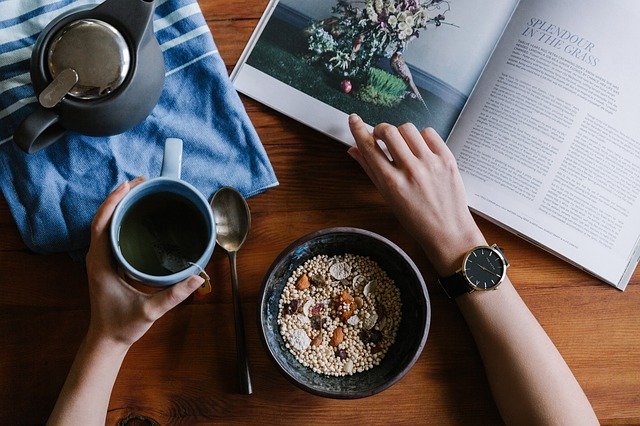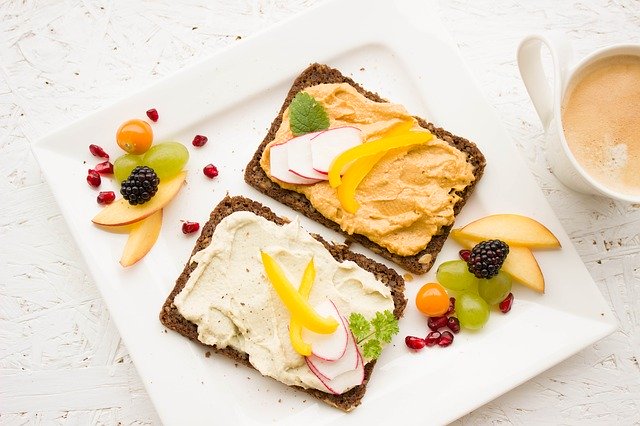What does it mean when the traditional Aussie barbie is replaced by mock BBQ meat? The growing vegan movement in Australia is proof that more and more Aussies are becoming aware of the benefits of compassionate eating.
Back in 2018, PETA (People for Ethical Treatment of Animals) reported that Australia ranked highest in Google Trends Data for searches related to veganism. Users searched for vegan food options and recipes, with the highest interest coming from Melbourne, Adelaide, Brisbane and Perth.
While ethical and environmental concerns are high on the list of reasons for turning vegan, in this article, we’ll talk about diet and food substitutes that vegans should know.
What is veganism?
A vegan follows a way of life that refuses to exploit or use animals or animal products for food, clothing or any other purpose. They believe that all animals value their lives and want to live, and will try to avoid suffering and seek pleasure.
While a vegan will certainly not eat meat, they also avoid animal products like honey and gelatin, as well as dairy products like cheese, yoghurt, cottage cheese, or cream made from animal milk. They will not use products tested on animals or wear animal products like leather or fur.
What does a vegan diet look like?
A vegan diet consists of fruit, vegetables, grains, nuts, and seeds, but it isn’t limited to just these ingredients. Plant-based dairy substitutes include coconut milk, oat milk, soy milk and almond milk – all of which are turned into cheese, ice cream and yoghurt.
Many vegans who have switched to a plant-based diet for ethical or environmental reasons may miss the taste or texture of meat. For them, an abundance of mock meat brands is a great substitute. Compared to just a few years ago, a vegan is now spoilt for choice in Australia, both in restaurants and cafes and when they shop at the supermarket.

What are the benefits of a plant-based diet?
The stereotype of veganism being a ‘hippie diet’ or a ‘rabbit food’ diet is fading slowly as Australia (and the world) moves towards a more holistic view of the environment. Turning vegan offers many benefits, including:
Greater transparency
It is easier to trace not only the quality but also the place from where plant-based food has originated.
Increased awareness of health benefits
Plant-based food has several health benefits which some believe outnumber meat-based food.
Stronger focus on taste and quality of plant-based products alongside a wider range of options
Over the last few years, there has been an explosion in the quantity and quality of plant-based food choices that are available in both supermarkets and restaurants
Change in perception and preferences of the next generation
Lately, there has been an increasing emphasis on sourcing food from local and small-scale producers to ensure that it is ethical, sustainable and healthy and vegan food fits the bill.
What are the health benefits of a vegan diet?
A balanced and whole-food vegan diet has been shown to be beneficial for all individuals. Compared to eating a largely animal-product-based diet, a plant-based diet could help you live a longer, healthier life by significantly slashing your risk of falling victim to many of the serious health threats facing Australians today such as:
- Heart disease and stroke
- Cardiovascular disease
- Cancer primarily colorectal cancer
- Obesity
- Diabetes
- Hypertension
- Metabolic Syndrome
- Digestive disorders
- Auto-immune conditions

Can anyone switch to a vegan diet?
As per the Australian Dietary Guidelines, vegan diets are appropriate for individuals in all stages of life. Many people with health issues see improvements in their health after they start eating a well-balanced plant-based diet.
However vegan food can be restrictive and substitutes may not always be available. In the case of children, it is recommended to consult a nutritionist to ensure that they get all the nutrients and vitamins they need. This applies to pregnant or lactating women or those with vitamin deficiencies.
I’ve heard that a vegan diet does not provide all nutrients and is expensive to sustain. Is that true?
As with any diet, a vegan diet is capable of supplying all essential nutrients when it is well-rounded and includes a variety of food. As long as you consume a wide variety of vegan foods from all the food groups, you don’t need to worry about individual macro and micronutrients.
There are a few areas in which a vegan diet may be insufficient if not monitored correctly. All you need to do is ensure you are getting substitutes for the following dietary components from your food:
Protein
The human body gets enough protein from a vegan diet, with the added benefits of more fibre and less saturated fat. However protein from plant sources is not as easy for the body to digest as animal protein, so vegans will need to eat more.
Add these ingredients to your diet to ensure that your protein levels are maintained.
- Grains like wheat, oats, barley, quinoa
- Sunflower, chia or pumpkin seeds
- Sesame seeds or oil
- Tofu
- Chickpeas or lentils
- Vegan protein powders made from peas or plant sources
Calcium
Traditional sources of calcium are milk and dairy products. For a vegan diet, choose the following substitutes:
- Boy choy
- Tahini
- Vegan milk substitutes with added calcium
- Almonds
Low levels of calcium may put you at risk for brittle bones or osteoporosis as you get older. It is a good idea to check your calcium levels regardless of your dietary choices and take a supplement if needed.
Iron
Most meat and poultry products have high levels of the type of iron that your body can absorb, while plant ingredients do not. However, add the following to your diet to increase iron levels:
- Wholegrain cereal in the form of oats, muesli, wholemeal bread
- Make meals based on brown rice or quinoa
- Snack on dried apricots, and pumpkin or sunflower seeds
- Tofu or tempeh
- Chickpeas or beans
- Greens like broccoli, capsicum, cabbage, kale
Symptoms of low iron levels may include fatigue, dizziness, thinning hair, and headaches. Women who menstruate will lose iron through blood loss and will need more iron than men. Pregnant women also need higher levels of iron.
Vitamin B12
While many people who eat meat are deficient in Vitamin B12, this vitamin is found largely in animal products. A vegan may find it hard to eat enough to improve B12 levels. It is recommended that vegans take a supplement and choose products fortified with B12.
Symptoms of low levels of B12 include tingling or numbness in your hands or feet, feeling low or depressed, or having trouble with memory or balance.
While being vegan can offer you a healthy diet, it is also good for the environment in numerous ways.
- It mitigates the suffering of farmed animals and saves hundreds of wild animals from painful deaths
- Reduces greenhouse gas emissions created by breeding and slaughtering animals
- Prevents the spread of deadly viruses from animals to humans
If you would like to talk to a nutritionist about adopting a vegan diet, Avaana can help you find one.



